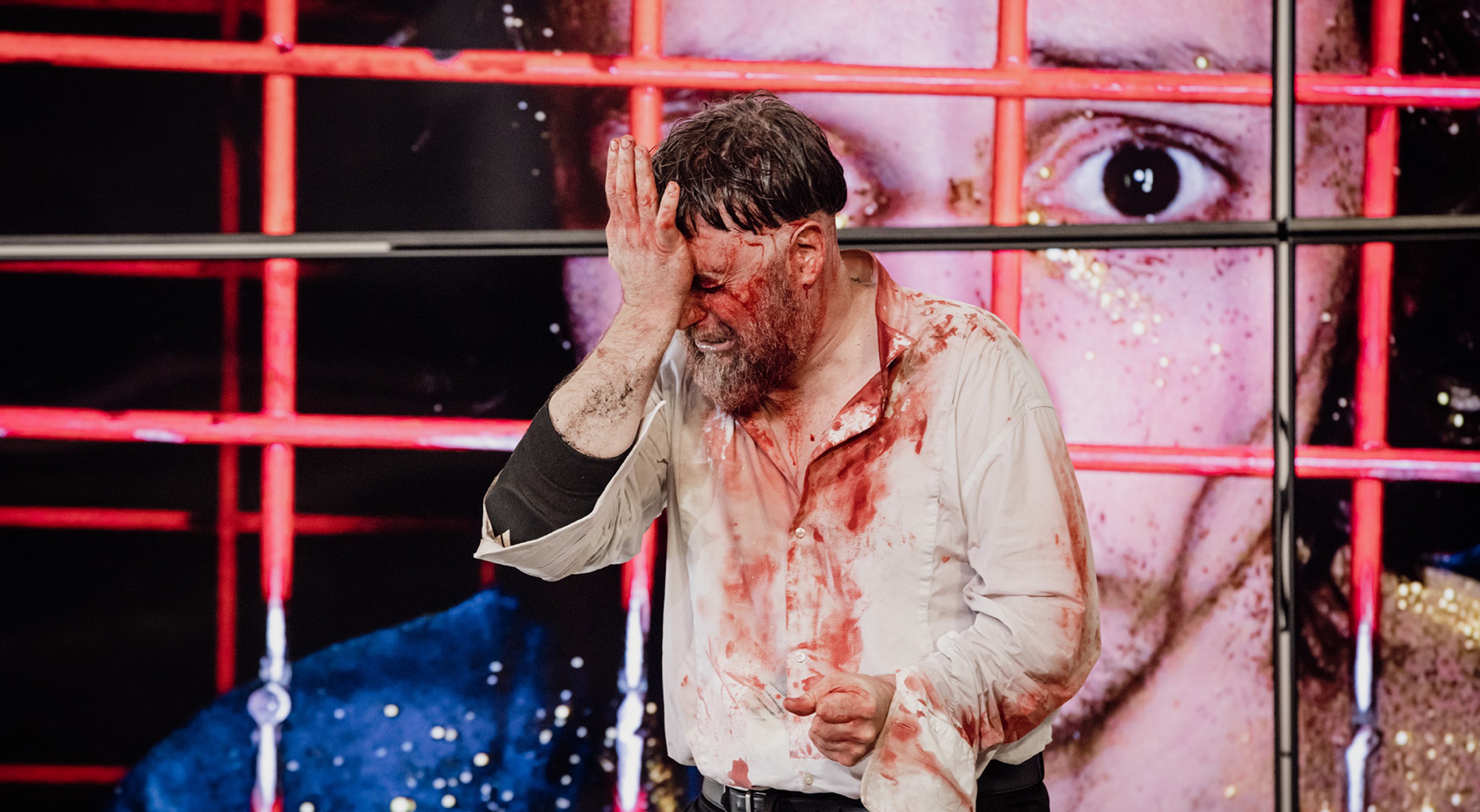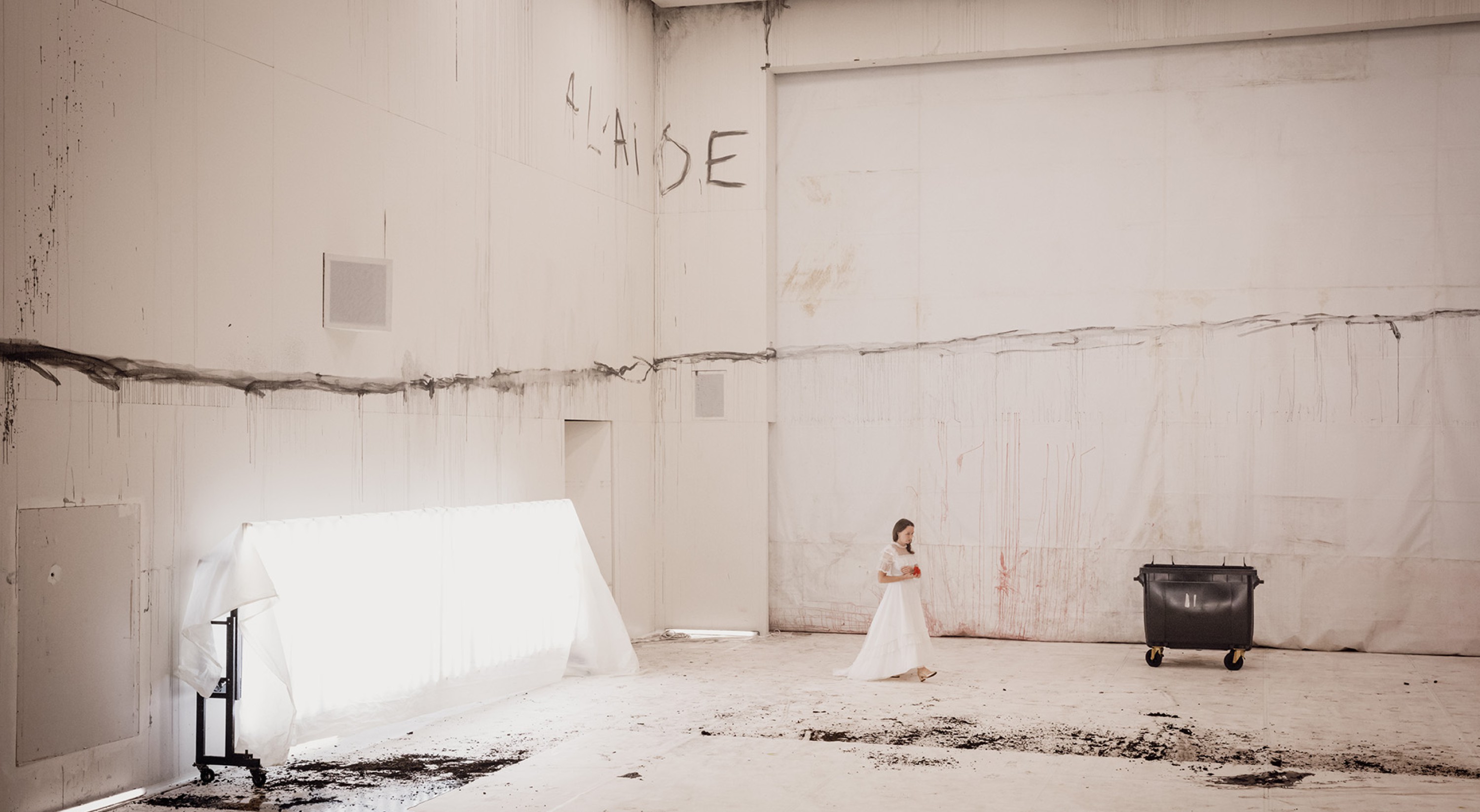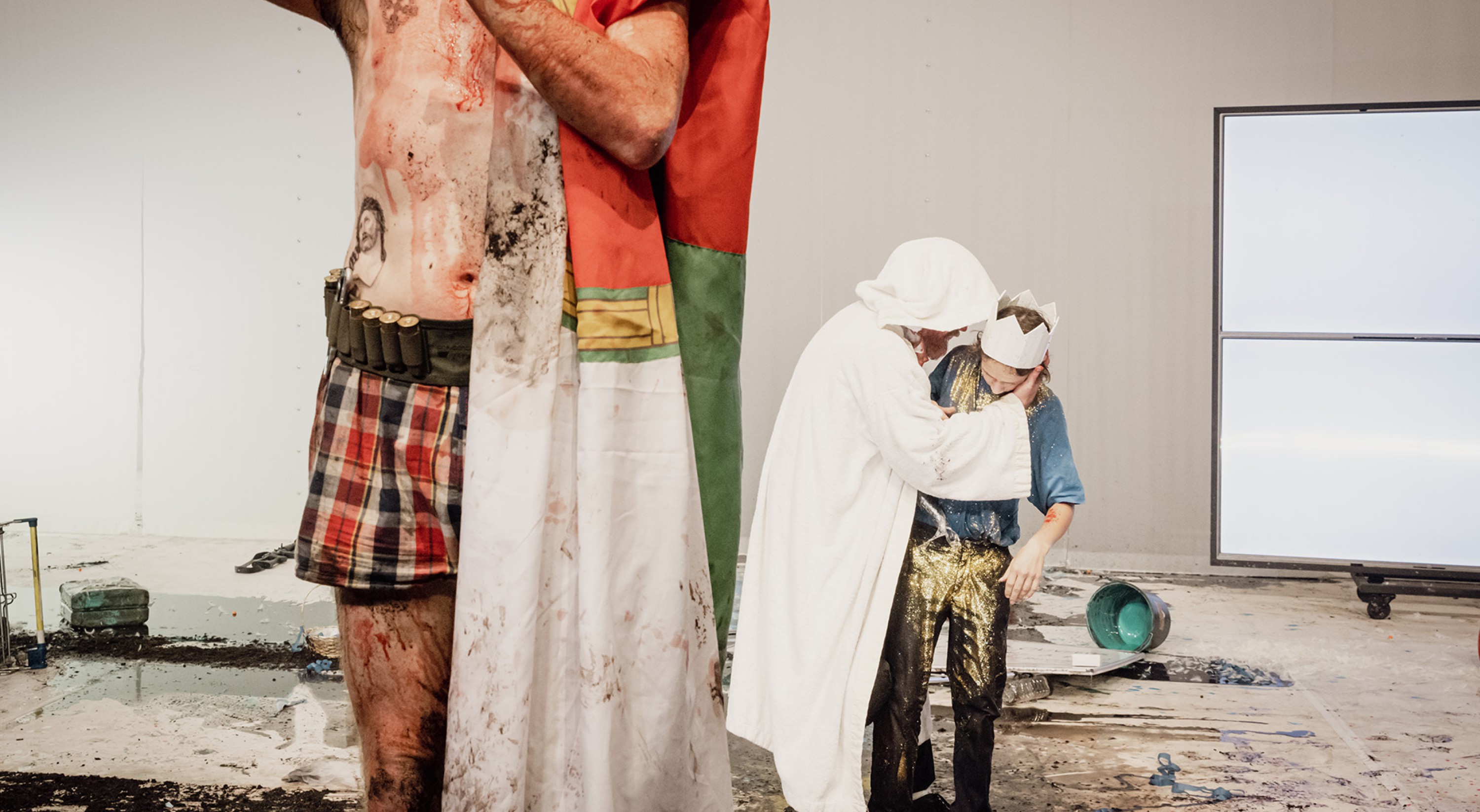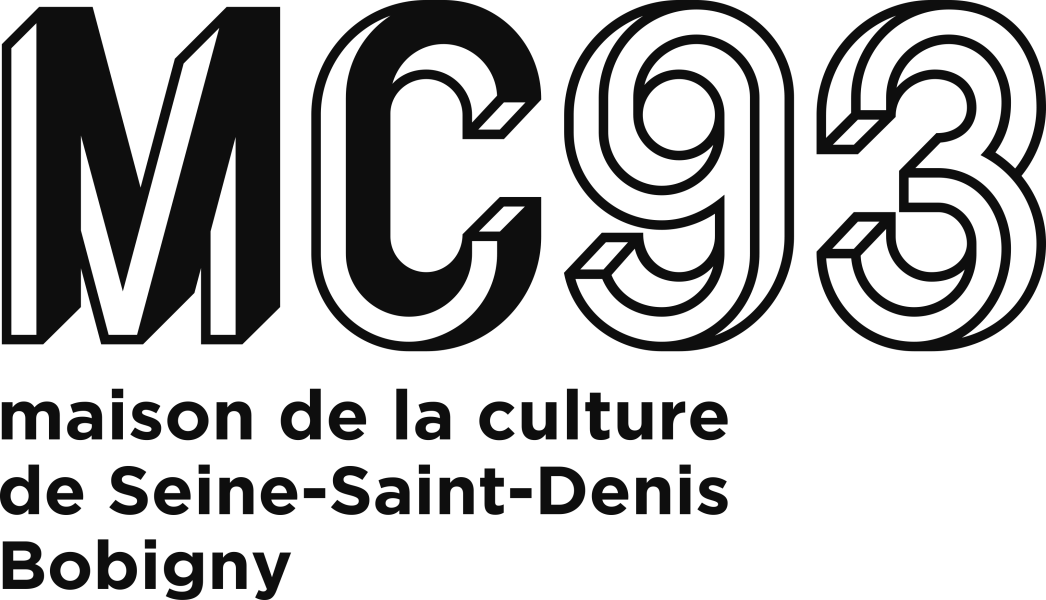Vincent Macaigne
Avant la terreur
octoberoct 5 – 15
Text, direction, visual and scenic design, Vincent Macaigne
Based on Shakespeare and other texts
Performers, Sharif Andoura, Max Baissette de Malglaive, Candice Bouchet, Thibault Lacroix, Clara Lama Schmit, Loïc Le Roux, Pauline Lorillard, Pascal Rénéric, Sofia Teillet – and alternating children
Assistant director, Clara Lama Schmit
Lighting design, Kelig Le Bars
Accessories and assistant general manager, Lucie Basclet
Video design, Noé Mercklé-Detrez, Typhaine Steiner
Sound design, Sylvain Jacques, Loïc Le Roux
Costumes, Camille Aït Allouache
Stage management, François Aubry aka "Moustache", Sébastien Mathé
Set design collaboration, Carlo Biggioggero, Sébastien Mathé
Creative assistance and lighting control, Edith Biscaro
Stage management and accessories, Manuia Faucon
Stage management, Tanguy Louesdon
Video management, Laurent Radanovic, Stéphane Rimasauskas
Production management, Lucila Piffer
Set construction, MC93 workshop and Théâtre de Liège workshop
Trainee stage directors, Noémie Guille, Nathanaël Ruestchmann
Accessories trainee, Anna Letiembre-Baës
And the teams at the MC93
Produced by MC93 - Maison de la Culture de Seine-Saint-Denis; Compagnie Friche 22.66
Coproduced by TNB Théâtre national de Bretagne; Les Théâtres de la Ville de Luxembourg; TANDEM - Scène nationale (Douai-Arras); Bonlieu - Scène nationale d'Annecy; Festival d'Automne à Paris; La Colline – théâtre national; Célestins, Théâtre de Lyon; Le Quartz - Scène nationale de Brest; Domaine d'O Montpellier –Cité européenne du théâtre; Théâtre de Liège (in progress)
With financing from the Île-de-France region
With the support of the Fondation d'entreprise Hermès
The MC93 - Maison de la Culture de Seine-Saint-Denis and the Festival d'Automne à Paris are co-producers and co-presenters of this performance
Vincent Macaigne probes deep into the most cult-like of the different Shakespearian Richards, Richard III, stripping away the central character's demonic aura in order to make him into a dangerous idiot. From out of this both terrifying and hilarious text, he brings us a joyously apocalyptic piece of total theatre, in which laughter keeps the worst of all worlds at bay.
Vincent Macaigne returns to the stage after an absence of six years in this weaving together of his readings of Hamlet (Au moins j’aurai laissé un beau cadavre) and The Idiot by Dostoyevsky. Via the character of Richard, he not only tackles a figure taken from our collective cultural heritage, but also, and more importantly, a man who is more stupid than he is evil. We are confronted with an idiot in the most negative sense of the word, a Hamlet who has gone awry, severely so, obsessed by power and hidden away in his own world, with no-one apart from his circle of scheming counterparts for company. In a free-ranging adaptation of this great text which is as chilling as it is burlesque, he provides us with a grand piece of theatre which is joyously apocalyptic, and in which laughter always comes to the rescue. On a stage overflowing with props, the actors – some of whom are children –, driven by an overflowing form of energy, perhaps that of despair, summon up a world in which buffoonery is never far from the worst, nor the utopic from the nihilistic. This is a world whose ambient brutality has left its ugly, indelible mark on innocence. Any resemblance to…
In the same place



